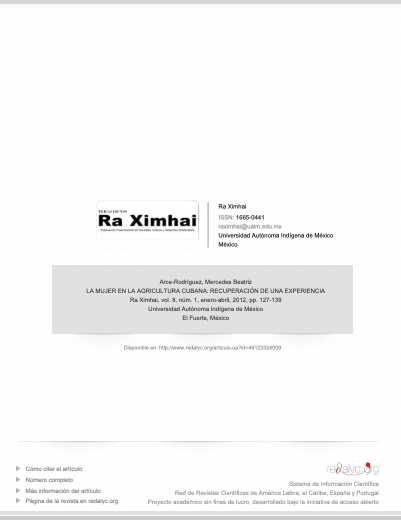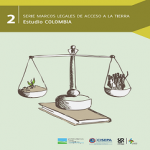Challenges of Opportunity Cost Analysis in Planning REDD+: A Honduran Case Study of Social and Cultural Values Associated with Indigenous Forest Uses
The REDD Programme is predicated on the assumption that developed countries will provide sufficient funds to offset opportunity costs associated with avoiding deforestation. The role of non-market values in indigenous land management may challenge the efficacy of compensation schemes targeted at meeting opportunity costs as calculated in traditional opportunity cost analysis (OCA). Furthermore it is unclear how these economic incentives might affect social and cultural values linked to land-use norms, livelihoods, and local governance.
Regulating the Sustainability of Forest Management in the Americas: Cross-Country Comparisons of Forest Legislation
Based on theoretical underpinnings and an empirical review of forest laws and regulations of selected countries throughout the Americas, we examine key components of natural forest management and how they are addressed in the legal frameworks of Argentina, Brazil, Chile, Costa Rica, Guatemala, Nicaragua, Paraguay, Uruguay, and the U.S.
La mujer en la agricultura cubana: recuperación de una experiencia
La autora desarrolla un análisis sobre la participación de la mujer cubana en proyectos de desarrollo rural, tomando como referencia diferentes épocas históricas del desarrollo cubano a partir del año 1959, momento del triunfo de la revolución de Fidel Castro. Expone a través de una experiencia en la zona de Holguín desde el 2003, los avances de las mujeres de esta zona dada su participación en un proyecto de desarrollo local con enfoque de género.
Dinámicas territoriales en Nicaragua: control de activos tangibles e intangibles por género
El control de activos condiciona la posibilidad de que las familias puedan lograr un desarrollo adecuado de sus capacidades, superar la situación de pobreza y dinamizar sus territorios; esta condición es particularmente válida considerando la situación de las mujeres.
Serie marcos legales de acceso a la tierra. Estudio Colombia
La mayor parte de los países de la región latinoamericana reconocen y garantizan en sus Constituciones el derecho a la tierra para las poblaciones que dependen de ella, pues este recurso es indispensable para su subsistencia, seguridad e identidad. Las condiciones de su acceso a la tierra, por lo tanto, tienen consecuencias en la seguridad alimentaria, y en la disminución o incremento de la pobreza de dichas poblaciones.
Eviction and Resistance in Cambodia: Five women tell their stories
ABSTRACTED FROM THE FORWARD: Forced evictions frequently lead to the breakdown of community networks and informal support systems relied upon by women in their daily lives. they often mean disruption of children’s education, diminished access to health services and a deterioration of the family’s mental and physical well-being. because many victims of forced eviction are resettled in areas far from urban centres and work opportunities, husbands spend long stretches of time away from their families, leaving their wives to cope alone with daily household chores and family needs.
Living under threat but with nowhere to go: A survey on the impact of forced eviction on women in Phnom Penh
ABSTRACTED FROM THE INTRODUCTION AND BACKGROUND INFORMATION: Housing, land and property rights issues affect men and women differently; hence these issues are not gender-neutral and require a gender equality analysis of the problem. While equal rights between men and women are enshrined in the 1993 Constitution of the Kingdom of Cambodia (the Constitution) and in a number of national laws, in practice women are still subordinate to men.
USAID Country Profile: Property Rights and Resource Governance - Cambodia
OVERVIEW: Cambodia is a largely agrarian country that emerged from a history of political strife and instability into a period of steady economic growth. However, the country started from such a low base that even after a decade of growth averaging 7% per annum, GDP is only $650. Cambodia is ranked 176th out of 213 countries in terms of purchasing-power parity. Poverty rates have reduced somewhat, but they remain higher than in most countries in the region and are only slightly lower than in Laos.
Is gender an important factor influencing 205 user groups’ property rights and forestry governance?
This article explores the effects that gender composition of forest user groups has on property rights and forestry governance, based on data from 290 forest user groups in Kenya, Uganda, Bolivia, and Mexico. Findings indicate gender composition of user groups is important, but not always in the expected ways. Female-dominated groups tend to have more property rights to trees and bushes, and collect more fuelwood but less timber than do male-dominated or gender-balanced groups.
Gender and sustainable forest management in East Africa and Latin America
Strategies to Get Gender Onto the Agenda of the “Land Grab” Debate
The International Land Coalition (ILC)’s Commercial Pressures on Land initiative aims to support the efforts of ILC members and other stakeholders to influence global, regional, and national processes to enable secure and equitable access to land for poor women and men in the face of increasing commercial demand. Its global research contains a careful and focused analysis of the gendered impacts of commercial pressures on land (CPL), and especially the impacts on women.









